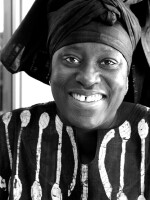ROBERT SIEGEL, host:
Now to Zimbabwe. The country's electoral commission confirmed today that Friday's presidential runoff will go ahead as planned. That announcement came despite international condemnation of state-sponsored brutality and despite appeals for the election to be postponed.
President Bush weighed in. He said elections are not free when a candidate is unable to campaign without fear of intimidation. And former South African President Nelson Mandela spoke of what he called a tragic failure of leadership in Zimbabwe.
Opposition candidate Morgan Tsvangirai emerged briefly from his refuge in the Dutch embassy. He called for a negotiated end to the political violence. NPR's Ofeibea Quist-Arcton reports.
OFEIBEA QUIST-ARCTON: Addressing journalists at his home in the capital, Harare, Morgan Tsvangirai called for talks to set up a coalition transitional authority, but he said negotiations could not begin until the political violence ended. He also said that if President Robert Mugabe's government went ahead with Friday's vote, then no dialogue was possible with his Movement for Democratic Change, the MDC.
Mr. MORGAN TSVANGIRAI (Movement for Democratic Change, Zimbabwe): Any election conducted arrogantly on Friday will not be recognized by the MDC, by Zimbabweans and by the world over.
QUIST-ARCTON: Tsvangirai won the first round of voting in March, but without the majority necessary for an outright victory. This week, he withdrew from the second round, saying a campaign of terror unleashed by Mugabe's supporters had made a free and fair election impossible.
Mugabe called Tsvangirai a crybaby who was running scared. He also criticized fellow African leaders and the West, who said the runoff should be called off.
President ROBERT MUGABE (Zimbabwe): They can shout as loud as they like from Washington or from London or from any other quarter. Only our people will decide, and nobody else.
QUIST-ARCTON: However, an emergency mini-summit of Southern African leaders today did call for Friday's election to be postponed, and Tsvangirai appealed to African leaders backed by the United Nations to organize a transition in Zimbabwe.
Mr. TSVANGIRAI: I'm asking the African Union and SADC to lead an expanded initiative supported by the United Nations to manage what I would call a transitional period, which takes into account the will of the people of Zimbabwe.
QUIST-ARCTON: After the news conference, Tsvangirai returned to the Dutch embassy in Harare. Meanwhile, in London, palace officials announced today that Queen Elizabeth was stripping Mugabe of an honorary knighthood out of revulsion for his disregard for human rights and democracy. Ofeibea Quist-Arcton, NPR News, Johannesburg. Transcript provided by NPR, Copyright NPR.






